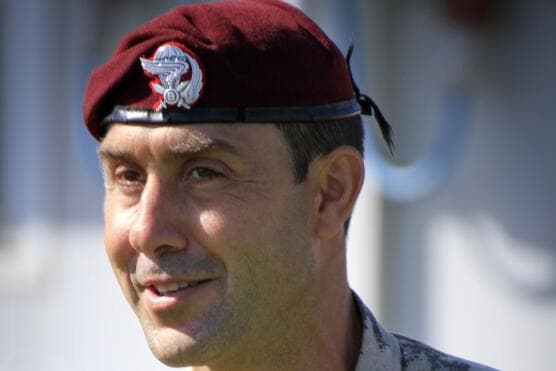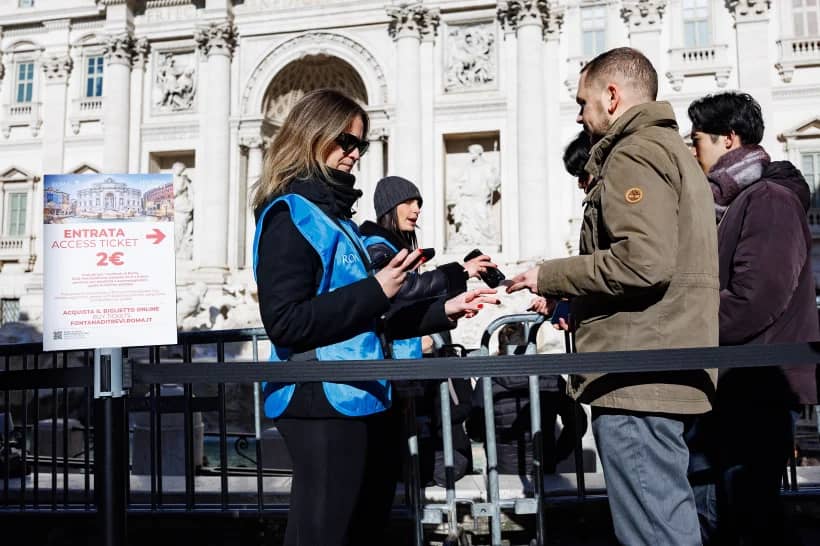ROME – Italian rightwing politician and suspended Army General Roberto Vannacci has been criticized by activists and the country’s Catholic bishops over remarks suggesting that children with disabilities ought to be separated in school classrooms.
Among those hitting back against Vannacci’s remarks was Bishop Francesco Savino of Cassano all’Jonio, vice president of the Italian Bishops Conference (CEI), who told Italian media that “a cultural vision of life is at stake here.”
“These statements take us back to the darkest periods of our history,” he said, insisting that “inclusion is a sign of civilization.”
In an interview with Italian newspaper La Stampa Saturday, Vannacci said he is a supporter of public schools, but wishes “they were stricter.”
“Today the level of all students is flattening downwards, even the best ones. Instead, school must be like sports, where people with similar performances are brought together,” he said.
To this end, Vannacci voiced his belief that “classes with ‘separate characteristics’ would help children with great potential express themselves to the maximum, and those with more difficulties would be helped in a special way.”
Pressed about the apparent discriminatory nature of his stance, Vannacci said his position is “not discriminatory,” insisting that “for students with problems, I rely on specialists.”
“I don’t specialize in disability. However, I certainly wouldn’t put a disabled person to run with someone who breaks the one-hundred-meter record. You can make them do a lesson together, in the spirit of belonging, but then they need specific help,” he said.
The same goes for the classroom, Vannacci said, asking, “Does someone with a serious learning [problem] feel more or less discriminated against in a class where everyone understands quickly?”
“I am not an expert in disability, but I am convinced that school must be tough and selective, because that is what life will be like. Or at least, that’s how my life has been,” he said.
In Italy, Vannacci has emerged as a controversial candidate set to run in Europe’s June elections, with much of the debate surrounding his ultra-conservative stance on issues such as immigration and homosexuality, and allegations of racism.
Vannacci, 55, is running for EU parliamentary elections in June with Italy’s rightwing populist Lega party, led by controversial former Italian politician Matteo Salvini, former deputy Prime Minister and Minister of the Interior.
A general in the Italian army, Vannacci was recently suspended for 11 months at the culmination of disciplinary procedure related to the self-publication of his new best-selling book, Il Mondo al Contrario, “The World Back to Front.”
In the book, Vannacci charges that gay people are “not normal” and touts the “Great Replacement” theory that Muslim migrants are replacing ethnic Italians, suggesting that only white people are true Italians.
His book not only make disparaging remarks against LGBTQ+ individuals and migrants, but also feminists and environmentalists.
After the book’s publication last summer, Vannacci was dismissed as head of Italy’s Military Geographical Institute by defense minister Guido Crosetto, who said the general’s “personal ramblings” had discredited the country’s armed forces.
The probe into alleged racial hatred came two days after Vannacci was placed under investigation by the military prosecutor’s office for suspected embezzlement and fraud during his time as military attaché at the Italian embassy in Russia, which lasted from February 2021 to May 2022.
Despite these controversies and legal battles, Salvini has repeatedly voiced esteem for Vannacci, voicing hope that he would run as a party candidate for the Lega in the June EU elections.
Andrea Abodi, Italian Minister of Sport, voiced hope that Vannacci “expressed himself badly” on disabled children, saying that while he respects everyone’s position, “we are poles apart” on the issue.
Similarly, Italian politician Luciano Ciocchetti, Minister of the Chamber of Deputies and social councilor of the Lazio Region, said Vannacci’s comments “challenge the fundamental principles of inclusion and human dignity.”
“It is with profound conviction that we reiterate the importance of an approach that places the person at the center, without distinctions or discrimination,” he said, saying policies of the national and regional governments “are based on values of integration, social inclusion and solidarity, promoting concrete actions to promote the inclusion and well-being of all citizens, including those who are most vulnerable.”
Gianfranco Salbini, president of the Italian Association of people with Down Syndrome, reiterated the organization’s commitment “to defend the rights of people with disabilities and to promote inclusive education that respects diversity.”
“General Vannacci’s recent statements on the possibility of reintroducing special classes represent a serious risk for inclusion education, an essential value for a civil and advanced society,” he said, saying the comments not only go against “the principles of equality and human rights, but also represent a violation of the UN Convention, which is the law of the Italian State.”
In response to public backlash over his remarks, Vannacci later said his comments were “distorted,” writing on Facebook that “No one is left behind, but let’s free the wings and brains of those who know or want to fly!”
Elise Ann Allen on X: @eliseannallen











